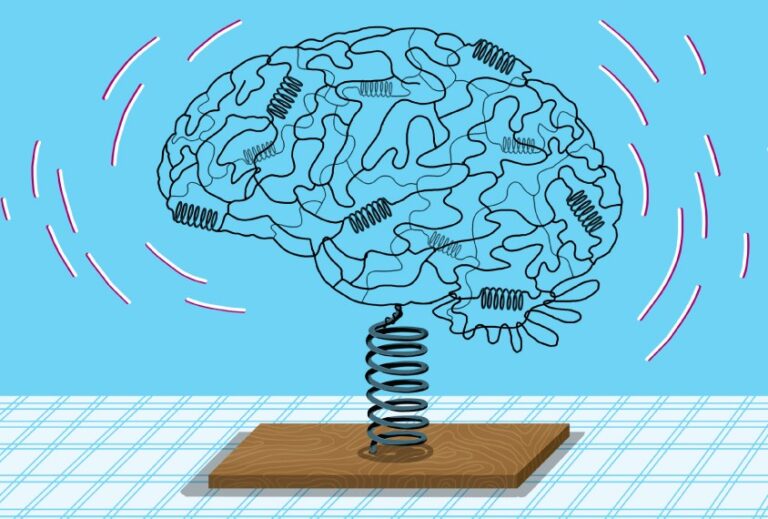Navigating the Path to Recovery: Exploring Trauma Therapists in Your Neighborhood
Have you ever felt like you’re trapped in a never-ending loop of distressing memories, overwhelming emotions, and debilitating anxiety? If so, you may be experiencing the lingering effects of Trauma Therapists near me. Whether it stems from a single traumatic event or years of accumulated pain, trauma can have a profound impact on every aspect of our lives.
But fear not! There is hope and healing available through the expertise of trauma therapists. These compassionate professionals specialize in helping individuals overcome their past traumas and reclaim their lives. In this blog post, we’ll delve into the world of trauma therapy, exploring different therapeutic models that have proven effective for countless survivors.
So if you’ve been searching for answers on your journey to recovery, look no further. We’ll guide you through understanding the various types of traumatic experiences and provide statistics that shed light on just how prevalent this issue is in society today. Plus, we’ll explain what PTSD (post-traumatic stress disorder) is all about and outline its physical, emotional, and mental symptoms.
But knowledge alone won’t lead us to healing; action must follow. That’s why we’ll also explore some highly effective trauma therapy models such as Cognitive Behavioral Therapy (CBT), Eye Movement Desensitization and Reprocessing (EMDR), Attachment-Based Therapy Models – just to name a few! Each approach offers unique benefits tailored to individual needs.
Now comes the exciting part – finding trauma therapists near you! We’ve done our research and will share with you some reputable resources where you can search for qualified professionals right in your neighborhood. From online directories like Psychology Today Directory to specialized platforms like Amwell Therapy Platform – help is just a click away.
Understanding Trauma and Its Effects
Trauma can be a deeply distressing experience that leaves lasting effects on our mental, emotional, and physical well-being. It can result from various events such as accidents, abuse, natural disasters, or even witnessing violence. These traumatic experiences can shatter our sense of safety and security, leaving us feeling vulnerable and overwhelmed.
The impact of trauma is far-reaching. It can disrupt our thoughts, emotions, behaviors, relationships – essentially every aspect of our lives. Symptoms may manifest in different ways: flashbacks or nightmares reliving the event; avoidance of triggers that remind us of the trauma; hypervigilance or constantly being on high alert; difficulty concentrating or sleeping; overwhelming feelings of guilt or shame. By understanding the profound effects of trauma, we can begin to take steps towards healing and reclaiming our lives.
Types of Traumatic Experiences
Traumatic experiences come in various forms and can affect individuals differently. Some common types of trauma include physical abuse, sexual assault, natural disasters, accidents, combat exposure, and witnessing violence. These events can deeply impact a person’s emotional well-being and cause long-lasting effects on their mental health.
Furthermore, traumatic experiences can also be categorized as acute or chronic. Acute trauma refers to a single incident that has caused distress or harm, such as a car accident or an act of violence. On the other hand, chronic trauma involves repeated exposure to distressing situations over an extended period of time, like ongoing domestic abuse or living in a war zone.
Each type of traumatic experience brings its own set of challenges for individuals to overcome. It is important to understand these different types so that appropriate support and therapy can be provided based on the specific needs of each individual affected by trauma.
Statistics on Trauma
Understanding the prevalence of trauma is crucial in recognizing the significance of seeking therapy. Statistics reveal just how common traumatic experiences are, impacting individuals from all walks of life. According to a national survey, approximately 70% of adults have experienced at least one traumatic event in their lifetime.
Trauma knows no boundaries and can affect people regardless of age or background. In fact, studies show that children are particularly vulnerable, with more than two-thirds experiencing at least one traumatic event by the age of 16. These statistics highlight the urgent need for accessible trauma therapists in every neighborhood to support those who have been affected by these distressing experiences.
What is PTSD?
PTSD, or Post-Traumatic Stress Disorder, is a mental health condition that can develop after experiencing or witnessing a traumatic event. It is not limited to combat veterans; anyone who has gone through a distressing incident can be affected.
Individuals with PTSD may experience intrusive memories, flashbacks, nightmares, and intense emotional reactions related to the trauma they experienced. They often avoid triggers that remind them of the event and may have difficulty sleeping or concentrating. These symptoms can significantly impact their daily lives and relationships. Seeking help from trauma therapists near you can provide support and guidance in managing these challenges effectively.
Physical, Emotional, and Mental Symptoms of Trauma
When it comes to trauma, the effects can manifest in various ways, impacting not just our minds but also our bodies and emotions. Physical symptoms of trauma may include headaches, stomachaches, muscle tension, and fatigue. These physical manifestations are often a result of the body’s stress response system being activated for extended periods.
In addition to physical symptoms, trauma can also take a toll on our emotional well-being. It is common to experience feelings of fear, anxiety, sadness, anger, or guilt. These emotions may arise unexpectedly or be triggered by specific reminders of the traumatic event. Furthermore, individuals who have experienced trauma may struggle with mental symptoms such as difficulty concentrating or making decisions and experiencing intrusive thoughts or nightmares related to the traumatic event.
Trauma affects us holistically – physically, emotionally, and mentally. Understanding these different aspects can help us recognize when we may need support from a trauma therapist to navigate through the healing process effectively.
Effective Trauma Therapy Models
When it comes to addressing trauma, there are various therapy models that have shown effectiveness in helping individuals heal and recover. One widely used approach is Cognitive Behavioral Therapy (CBT), which focuses on identifying negative thoughts and behaviors related to trauma and replacing them with healthier ones. Another model, Cognitive Processing Therapy (CPT), helps individuals understand how their traumatic experiences have affected their beliefs about themselves and the world around them.
Prolonged Exposure Therapy (PE) is another effective method that involves gradually exposing individuals to feared situations or memories associated with their trauma, allowing them to process and overcome their anxiety. Eye Movement Desensitization and Reprocessing (EMDR) utilizes bilateral stimulation techniques such as eye movements or tapping to help reprocess traumatic memories. Attachment-based therapy models focus on repairing relational wounds caused by trauma, while Acceptance and Commitment Therapy (ACT) encourages acceptance of difficult emotions while committing to actions aligned with personal values. Family therapy or couples therapy can also be beneficial for those whose traumas impact their relationships, providing a safe space for communication and healing. And finally, group therapy offers a supportive environment where individuals can share their stories while gaining insight from others who have experienced similar traumas.
These different therapeutic approaches offer unique ways of addressing trauma based on individual needs and preferences. It’s important for those seeking treatment to explore these options further in order to find the approach that feels most aligned with their healing journey.
Cognitive Behavioral Therapy (CBT)
Cognitive Behavioral Therapy (CBT) is a widely recognized and effective treatment model for trauma. It focuses on the connection between thoughts, emotions, and behavior. By identifying negative thought patterns related to traumatic experiences, CBT helps individuals challenge and reframe these thoughts in order to change their emotional responses and behaviors.
In CBT sessions, therapists work collaboratively with clients to develop strategies for coping with trauma triggers. This can involve learning relaxation techniques, practicing mindfulness exercises, or engaging in exposure therapy to gradually confront feared situations. By addressing both cognitive and behavioral aspects of trauma, CBT empowers individuals to take control of their reactions and make positive changes in their lives.
Cognitive Processing Therapy (CPT)
Cognitive Processing Therapy (CPT) is a widely used and effective treatment for trauma-related disorders. It helps individuals identify and challenge negative thoughts and beliefs that are often associated with their traumatic experiences. By targeting these cognitive distortions, CPT aims to reduce the distressing symptoms of trauma.
During CPT, therapists work collaboratively with clients to explore and reframe their thoughts about themselves, others, and the world around them. This therapy model emphasizes the connection between thoughts, emotions, and behaviors. Through guided exercises and discussions, individuals can gain insight into how their thinking patterns may be contributing to their distress. With time and practice, clients learn new ways of interpreting events that promote healing and well-being.
Prolonged Exposure Therapy (PE)
Prolonged Exposure Therapy (PE) is a widely recognized and effective treatment model for trauma. In this therapy, individuals are encouraged to confront their traumatic memories in a controlled and safe environment. The goal is to gradually reduce the distress associated with these memories through repeated exposure.
During PE, therapists help clients identify avoidance behaviors and develop strategies to gradually face their fears. This may involve revisiting the traumatic event through imaginal exposure or engaging in real-life situations that trigger anxiety or fear. With time, this process can lead to a reduction in symptoms such as intrusive thoughts, nightmares, and hypervigilance.
PE has been found to be highly successful in treating post-traumatic stress disorder (PTSD) by helping individuals reprocess their traumatic experiences. It empowers them to regain control over their lives and break free from the grip of past trauma. If you’re seeking trauma therapy near you, consider exploring professionals who specialize in Prolonged Exposure Therapy (PE). They can guide you on your journey towards healing and recovery.
Eye Movement Desensitization and Reprocessing (EMDR)
Eye Movement Desensitization and Reprocessing (EMDR) is a unique and effective trauma therapy model that has gained popularity in recent years. This approach helps individuals process distressing memories and reduce the emotional impact of traumatic experiences.
During an EMDR session, the therapist guides the client’s eye movements while they recall specific traumatic events. This bilateral stimulation helps rewire the brain’s neural pathways, allowing for new insights and healing to take place. Many people have found relief from symptoms such as flashbacks, nightmares, and anxiety through this innovative therapy modality. EMDR offers hope for those who have been affected by trauma and are seeking a path towards recovery.
Attachment-Based Therapy Models
Attachment-Based Therapy Models are a powerful approach to trauma therapy that focuses on the importance of secure and healthy relationships. These models recognize that our early attachment experiences shape our ability to form connections and regulate emotions later in life. By exploring these early relationships, therapists can help individuals develop more secure attachments and heal from traumatic experiences.
One widely used attachment-based therapy model is Emotionally Focused Therapy (EFT), which helps individuals identify patterns of interaction within their relationships and work towards creating greater emotional closeness and security. Another effective model is Internal Family Systems (IFS) therapy, which views the mind as consisting of different parts or “inner selves” that may have conflicting needs or beliefs. Through IFS therapy, individuals learn to understand and heal these internal conflicts, leading to increased self-awareness and improved relationships with others.
Acceptance and Commitment Therapy (ACT)
Acceptance and Commitment Therapy (ACT) is a powerful approach to trauma therapy that focuses on accepting the pain and suffering associated with traumatic experiences. It encourages individuals to commit to actions that align with their values, even in the face of difficult emotions or thoughts.
In ACT, clients are taught mindfulness techniques to increase awareness of their internal experiences and develop an attitude of acceptance towards them. They learn to observe distressing thoughts and feelings without judgment, allowing them to create space for healing and growth. By committing to actions that reflect their values, individuals can break free from the grip of trauma and move towards a more fulfilling life.
Family Therapy or Couples Therapy
Family therapy and couples therapy are therapeutic approaches that focus on improving relationships within families or romantic partnerships. These types of therapy can be extremely beneficial for individuals who have experienced trauma, as it provides a safe space to address underlying issues and work towards healing together.
In family therapy, the entire family unit participates in sessions, allowing everyone to express their thoughts and feelings while learning effective communication skills. Couples therapy specifically focuses on the dynamics between partners and aims to improve connection, trust, and understanding. Both forms of therapy emphasize collaboration and support in order to navigate through the challenges caused by trauma.
Group therapy for Trauma
Group therapy for trauma can be a powerful and effective way to heal from the wounds of the past. In these supportive group settings, individuals are able to connect with others who have experienced similar traumas, creating a sense of understanding and shared empathy.
In group therapy, participants have the opportunity to share their experiences, thoughts, and feelings in a safe and non-judgmental environment. This process allows for validation and normalization of their emotions while also gaining insights from others who may be further along in their healing journey. Working together as a collective can help survivors feel less alone in their struggles and provide them with valuable support that promotes growth and resilience.
Finding Trauma Therapists in Your Area
When it comes to finding trauma therapists in your area, there are several options available to help you navigate this important journey. One option is to explore local resources such as The Better You Institute LLC, which offers specialized trauma therapy services. Additionally, if you’re located in Philadelphia, there are numerous trauma therapists who specialize in helping individuals heal from traumatic experiences.
Another valuable resource for finding trauma therapists is the Psychology Today directory. This comprehensive online directory allows you to search for professionals by location and filter results based on specific criteria such as insurance accepted or areas of expertise. Alternatively, the International Therapist Directory provides a global database of licensed mental health professionals who offer trauma therapy services.
If you prefer virtual sessions or have limited access to local providers, platforms like Amwell offer teletherapy options where you can connect with trauma therapists online from the comfort of your own home. Additionally, if you happen to be in Mesa, AZ, the Cactus Flower Healing Center provides holistic healing approaches specifically tailored to address trauma and its effects.
Taking that first step towards seeking help from a qualified trauma therapist is crucial for your well-being and recovery journey. By exploring these various resources and reaching out to professionals near you or through virtual channels when necessary, you can find the support system needed to heal and thrive after experiencing traumatic events without having to navigate this path alone.
The Better You Institute LLC
The Better You Institute LLC is a renowned trauma therapy center that is dedicated to helping individuals navigate the path to recovery. Their team of experienced and compassionate therapists are committed to providing personalized care for each client, ensuring that they feel seen, heard, and supported throughout their healing journey.
At The Better You Institute LLC, they offer a range of effective trauma therapy models tailored to meet the unique needs of each individual. From evidence-based approaches like Cognitive Behavioral Therapy (CBT) and Eye Movement Desensitization and Reprocessing (EMDR), to attachment-based therapy models and group therapy options – they have a comprehensive toolkit to address various types of traumatic experiences. So if you’re in search of top-notch trauma therapists near you, look no further than The Better You Institute LLC for expert guidance on your path towards healing.
Trauma Therapists in Philadelphia
When it comes to finding trauma therapists in Philadelphia, you have a wide range of options available. This vibrant city is home to numerous mental health professionals who specialize in trauma therapy. Whether you’re looking for individual counseling or group therapy sessions, there are therapists in Philadelphia who can provide the support and guidance you need.
One option is The Better You Institute LLC, which offers trauma-focused therapy services tailored to your specific needs. They prioritize creating a safe and supportive environment where clients can explore their experiences and work towards healing. Additionally, there are several other trauma therapists practicing in Philadelphia who are listed on psychology directories like Psychology Today and the International Therapist Directory. These resources make it easier than ever to connect with qualified professionals who can help you navigate your healing journey.
Psychology Today Directory
If you’re on the hunt for trauma therapists in your area, one valuable resource to consider is the Psychology Today Directory. This comprehensive online directory allows you to search for therapists based on location and specialty, including trauma therapy. With a user-friendly interface, it’s easy to navigate through profiles and find the right therapist who meets your specific needs.
The Psychology Today Directory provides detailed information about each therapist, including their qualifications, areas of expertise, and contact information. You can also read client reviews and see if they accept insurance or offer sliding scale fees. It’s a convenient way to explore different options without leaving the comfort of your own home. So why not give it a try and start your journey towards healing today?
International Therapist Directory
Searching for a trauma therapist who specializes in international therapy? Look no further than the International Therapist Directory. This comprehensive directory connects individuals worldwide with qualified therapists who have experience working with trauma and its effects. With an easy-to-navigate interface, you can search for therapists based on location, specialty, and even language spoken. Whether you’re seeking online therapy or prefer in-person sessions, the International Therapist Directory is a valuable resource to help you find the right trauma therapist near you.
The International Therapist Directory provides detailed profiles of each therapist listed, allowing you to learn more about their qualifications, areas of expertise, and therapeutic approach. Many therapists also include information about their availability and fees, making it easier for you to make an informed decision when choosing a trauma therapist. With its global reach and diverse range of therapists, the International Therapist Directory ensures that individuals from all backgrounds can access effective trauma therapy services tailored to their specific needs.
Amwell Therapy Platform
Amwell Therapy Platform is a convenient and accessible resource for finding trauma therapists in your area. With just a few clicks, you can connect with licensed professionals who specialize in trauma therapy. The platform offers virtual sessions, allowing you to receive the support you need from the comfort of your own home.
Whether you’re located in a small town or a bustling city, Amwell Therapy Platform provides access to qualified trauma therapists near you. Their user-friendly interface makes it easy to search for therapists based on location and specialization. Plus, their extensive profiles provide detailed information about each therapist’s background and approach to treatment. With Amwell Therapy Platform, help is just a click away!
Cactus Flower Healing Center in Mesa, AZ
Located in Mesa, AZ, the Cactus Flower Healing Center is a haven for individuals seeking trauma therapy. This center offers a range of therapeutic services tailored to meet the unique needs of trauma survivors. Their team of highly trained therapists are dedicated to providing compassionate care and helping clients navigate their path to recovery.
At Cactus Flower Healing Center, you can expect a warm and welcoming environment where healing begins. The center offers various evidence-based therapies, including cognitive behavioral therapy (CBT), eye movement desensitization and reprocessing (EMDR), and attachment-based therapy models. With their expertise and commitment to individualized treatment plans, they provide invaluable support on your journey towards healing from trauma.
The Importance of Seeking Trauma Therapy
Trauma can have a profound impact on our lives, leaving us feeling overwhelmed and unable to cope with everyday challenges. That’s why seeking trauma therapy is so important. It provides a safe and supportive environment where you can explore your experiences, process emotions, and learn healthy coping strategies.
Untreated trauma can lead to a range of negative consequences, including increased risk for mental health disorders such as depression and anxiety, difficulties in relationships, self-destructive behaviors, and even physical health problems. By working with a trained trauma therapist, you can begin to unravel the complex layers of your traumatic experiences and find healing.
Trauma therapy offers various approaches tailored to your unique needs. These may include cognitive-behavioral therapy (CBT), cognitive processing therapy (CPT), prolonged exposure therapy (PE), eye movement desensitization and reprocessing (EMDR), attachment-based therapies, acceptance and commitment therapy (ACT), family or couples therapy, or group therapy. Each approach has its own benefits in addressing different aspects of trauma.
Remember that seeking help is not a sign of weakness but rather an act of courage and strength. Trauma therapists are there to support you on your journey towards recovery. Take the first step by reaching out for professional assistance today!
Consequences of Untreated Trauma
When trauma goes untreated, its impact can be far-reaching and devastating. The lingering effects of unresolved trauma can seep into every aspect of a person’s life, affecting their relationships, work performance, and overall well-being.
Emotionally, untreated trauma can lead to feelings of intense fear, anxiety, or depression. It may manifest as persistent nightmares or flashbacks that transport individuals back to the traumatic event. These symptoms can disrupt daily life and make it difficult for someone to feel safe or secure in their own skin.
Physically, the consequences of untreated trauma can take a toll on one’s health. Chronic pain conditions such as migraines or gastrointestinal issues might arise due to prolonged stress responses in the body. Additionally, individuals may struggle with sleep disorders or have weakened immune systems that leave them susceptible to illness.
The repercussions extend beyond individual experiences too – unaddressed trauma can strain interpersonal relationships and create barriers to intimacy and trust. People grappling with unresolved trauma often find it challenging to connect deeply with others or maintain healthy boundaries.
It is crucial for those who have experienced trauma to seek help from trained professionals who specialize in trauma therapy. With proper intervention and support from qualified therapists specializing in treating traumas like yours , healing is possible! Seeking treatment empowers individuals to regain control over their lives while minimizing the long-term consequences associated with untreated trauma
How Trauma Therapy Can Help You
Trauma therapy can be a life-changing experience for individuals who have experienced traumatic events. It provides a safe and supportive space to process and heal from the emotional wounds caused by trauma.
Through various therapeutic techniques, trauma therapists help clients gain a deeper understanding of their experiences, develop coping mechanisms, and learn how to navigate the challenges that arise as they work towards recovery. By addressing unresolved emotions and negative thought patterns, trauma therapy empowers individuals to regain control over their lives and build resilience in the face of adversity. With the guidance of a skilled therapist, healing is possible, and new possibilities for growth and transformation emerge.
Conclusion and Next Steps
Trauma is a complex and deeply personal experience, but there is hope for healing. By understanding the effects of trauma and exploring effective therapy models, you can take the first step on your path to recovery. Finding trauma therapists in your area is crucial in receiving the support you need.
The importance of seeking trauma therapy cannot be overstated. Untreated trauma can have long-lasting consequences on your mental, emotional, and physical well-being. With the help of a skilled therapist, you can begin to heal from past experiences and cultivate resilience for the future.
Contacting trauma therapists in your neighborhood is easier than ever before with online directories like Psychology Today or International Therapist Directory. You can also explore local resources such as The Better You Institute LLC or Cactus Flower Healing Center in Mesa, AZ. Take that brave step today towards finding support and embarking on a journey of healing!
Contacting Trauma Therapists in Your Neighborhood
When it comes to finding the right trauma therapist in your neighborhood, there are a few avenues you can explore. One option is to check out local therapy centers or institutes like The Better You Institute LLC, which may offer trauma-specific services. Another option is to search online directories such as Psychology Today Directory or the International Therapist Directory, where you can filter by location and specialty. Additionally, platforms like Amwell provide virtual therapy sessions with licensed professionals who specialize in trauma.
It’s important to remember that not all therapists will be a good fit for everyone. Take the time to research and read reviews of potential therapists before reaching out for an initial consultation. This will help ensure that you find someone who specializes in trauma therapy and has experience working with individuals who have had similar experiences as yourself. Don’t hesitate to contact multiple therapists and ask questions about their approach or treatment modalities so you can make an informed decision based on your specific needs.
Resources for Finding the Right Trauma Therapist
When it comes to finding the right trauma therapist in your neighborhood, there are several resources available to help you on your path to recovery. These resources can provide you with a list of qualified professionals who specialize in trauma therapy and have experience working with individuals who have gone through similar experiences.
One option is The Better You Institute LLC, which offers a wide range of therapeutic services including trauma therapy. They have a team of dedicated therapists who are trained in various evidence-based approaches to help clients heal from their traumatic experiences.
If you’re located in Philadelphia, there are also specific trauma therapists available in the area. Whether you prefer individual therapy or group sessions, these professionals can tailor their approach to meet your unique needs.
Another valuable resource is the Psychology Today directory. This comprehensive online database allows you to search for trauma therapists near you based on location, specialization, and insurance coverage. It provides detailed profiles that include information about each therapist’s background, areas of expertise, and treatment modalities.
For those looking beyond local options, the International Therapist Directory offers listings for trauma therapists around the world. This directory allows you to search by country and language spoken by the therapist.
Additionally, if convenience is a priority for you or if accessing traditional therapy settings is challenging due to geographical limitations or other factors, consider exploring online platforms like Amwell Therapy. These platforms allow individuals seeking trauma therapy to connect with licensed professionals through video sessions from the comfort of their own homes.
Lastly but certainly not leastly! If you happen to be in Mesa Arizona – check out Cactus Flower Healing Center! They offer holistic healing services including trauma-focused therapies designed specifically for those seeking emotional support and growth after experiencing traumatic events.







